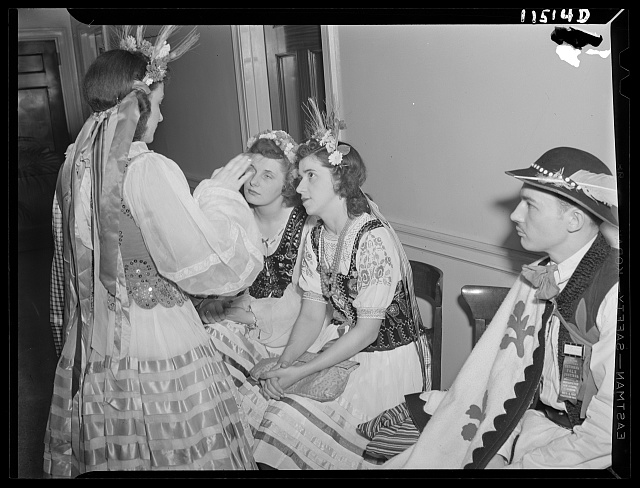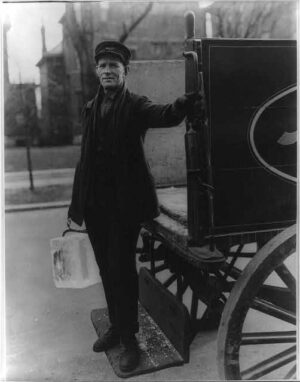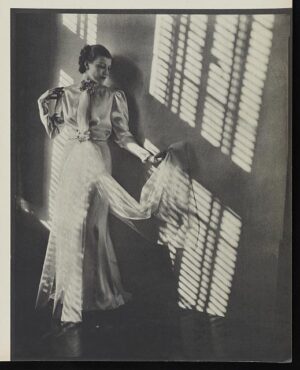Southern Legitimacy Statement: I was born in Sumter, South Carolina, grew up in the village of Walnut, jewel of Madison County, North Carolina, and spent my early adulthood in Nashville, Tennessee. I started writing seriously in high school, working in the song genre while playing in a band that practiced not in a garage but in an old cinderblock chicken coop that had once been part of a rural commercial poultry operation run by the bass player’s parents.
Holy City Buskers
The makeshift stage at the Summerville Community Center rose a full eleven inches above the empty gymnasium floor, and on that stage, the Holy City Buskers—three electric guitars, bass, and drums—played loud. Slowdancers had shuffled in sock feet and filled the area back to half court during “Can’t You See,” but near the end of that song, a big-breasted redhead started a fight with a bucktoothed blonde over a beanpole of a boy in a black cowboy hat who, just as the blonde was getting the better of the redhead, staggered in from the Center’s gravel parking lot and puked all over the women and that part of the gym floor. While three or four people broke for the restrooms, hands capped over their mouths, the rest of the crowd screamed and laughed in fright and delight as the love triangle slipped and slid and fell into the mess. Little girls hid behind their mothers’ plump blue-jean thighs, and fathers caught wired and wiry little boys by the shoulders to hold them back from the mess. The catfight turned into retch wrestling, and the Buskers made the poor choice to end their second set with KISS’s “Black Diamond,” a song nobody would dance to even on the best fourth Saturday nights.
During the break between sets, popcorn and candy sales fell off dramatically, but the concession stand experienced a run on Sprite.
Nobody returned to the dance floor until deep into the third and final set, long after Coach McFee and two of his offensive linemen escorted the combatants from the building and the cheerleader moms mopped up with Pine-Sol. Couples trickled back onto the floor during the Doobies’ “Long Train Runnin’” and Bad Company’s “Can’t Get Enough,” and the dam broke to fill the floor with the first staccato notes of “Sweet Home Alabama.”
Rhythm guitarist and lead singer Son Broughton turned after the first chorus and mouthed Finally! to the rest of the Buskers, then turned back to the microphone and launched into the second verse. He watched the pool of heads in front of the stage move up and down like a sketchy heartbeat, mostly in rhythm but partly not. As he sang, he saw a head appear out of the dark above the far shore of the dancers and begin moving in his direction, wading through jerking bodies that parted like he was Moses. Son sang,
In Birmingham, they love the governor. . . .
By the time the last verse ended, the man stood directly in front of Son, their faces eye-to-eye and seeming like only the length of the dented Shure SM58 mic separated them.
Son put his voice on autopilot for the final choruses so that he could try to remember if he knew this man, remember if he’d done something to him at some point, maybe think of an escape route if the man came at him. In the midst of this, the thought struck him that he was standing on an eleven-inch platform and the man was standing flat on the floor and looking him dead in the eye.
Dude must be seven feet tall, he realized.
He finished singing the repeat choruses, and Roy Lee and his brother Don took over the song with dual leads through the outro.
Son leaned back as the man leaned toward him and said something. With raised eyebrows, Son grinned and shook his head. The man leaned even closer and shouted near his ear. Son heard the voice but couldn’t understand the words. Too loud, he mouthed. Can’t hear.
In his peripheral vision, Son could tell that many of the dancers were beginning to lose rhythm as they glanced in the direction of the exchange. Some stopped altogether and watched, and for the first time, Son wondered if this situation was about to blow up. He felt his heartrate increase beyond its usual pace when the band was pumping.
Without leaning this time, the man spoke the words again.
Son thought of his ex-girlfriend, who often got pissed at him because he was a terrible lipreader. Even when she exaggerated the movement of her lips, he never understood what she was saying if she didn’t mix in a bit of whisper. He caught what he thought was a w shape, but this tall man barely moved lips that were partly hidden by a moustache in need of a trim. He could be saying anything from waste to wussies or even now to loud.
The man stopped trying to say whatever he was trying to say and stood staring at Son without looking away to the right or left, without even blinking.
Keeping his eyebrows slightly raised, Son returned the stare, not wanting to turn his back on this giant.
Drummer Tommie Hampton and bassist Martin Moore thumped their way into the guitars’ final jangling flourish on the G, and then the Buskers ended “Sweet Home Alabama” together with a splashy WHUMP!
As the last echoes of the ending ran through the community center and exited by open windows and the back doors, the dancers stood still and stared at what seemed like some kind of standoff taking place at the edge of the stage.
“Hey, man, what’s up?” Son said off the mic. “Sorry I’m a shitty lipreader.”
The tall man cleared his throat. “Can y’all play ‘Nights in White Satin’?” he asked in a rumbling bass voice.
Son stared for a moment, bit the inside of his cheek, and tried to process what the man had said. Then, “Moody Blues?”
“Yeah, that’s them,” the man said. “‘Nights in White Satin’?”
Son finally broke eye contact with the man and looked at Roy, who gave him a slight nod. “Buddy, we can play it, but it ain’t gonna sound like The Moody Blues,” he said. “We ain’t got a flute or a fiddle section.”
The man dropped his gaze and scratched his head. “That’s all right,” he said. “Maybe y’all can just sing the flute part.” He faced Son again. “You’re a good singer.” At that, the man rumbled, “Thanks,” and turned to stride back across the dance floor.
Tommie counted off the song, and with the first chord, the man returned from the dark beyond the half-court line with a squat but pretty brunette, the top of whose head was level with the nub of his sternum. He wrapped her in an embrace that pressed the side of her face against his belly, and they swayed together without moving their feet.
And then the slowdancers flooded the floor again and swallowed up the brunette, leaving the man’s ecstatic face floating above the high tide like the man in the moon.







